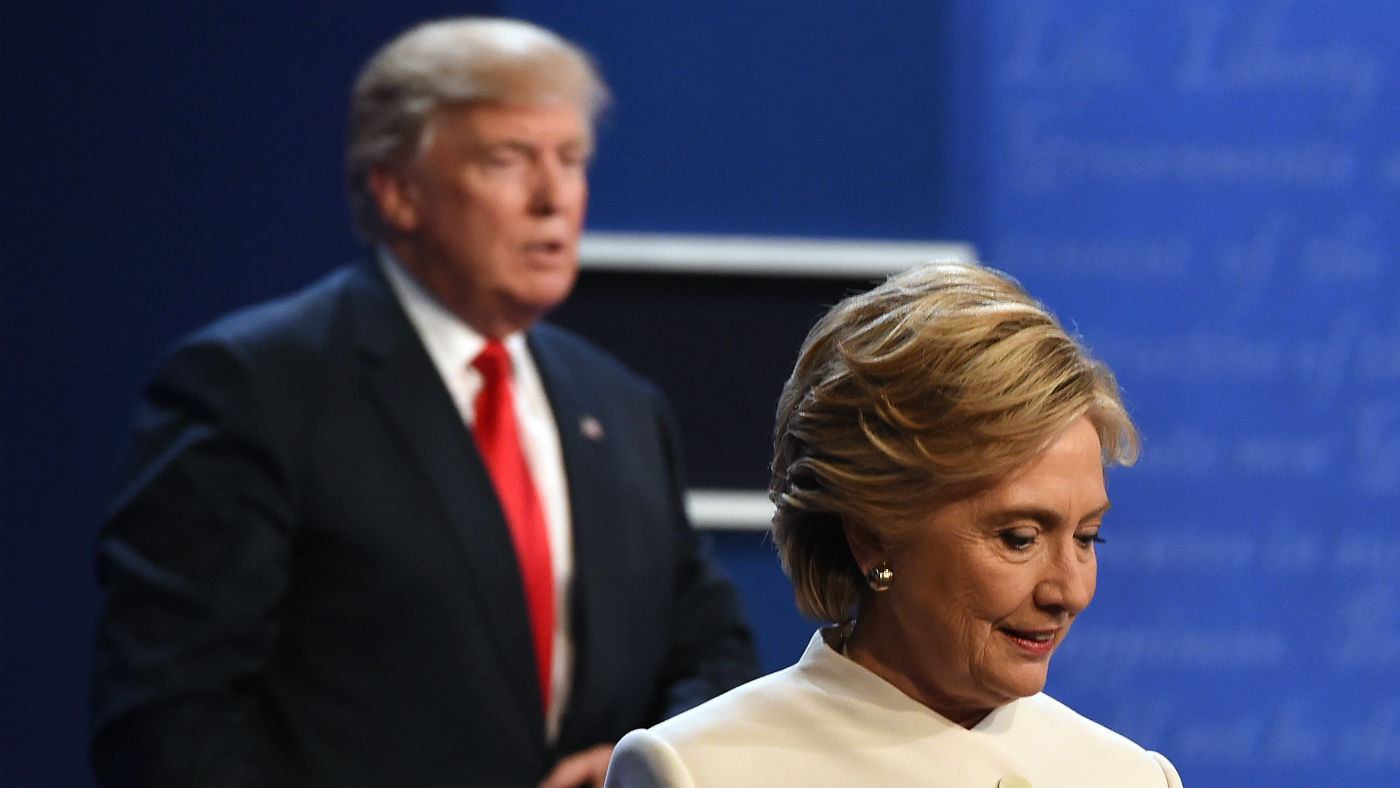Hillary Clinton campaign ‘helped fund Trump dossier’
White House says allegations around infamous intelligence file 'is real Russia scandal'

A free daily email with the biggest news stories of the day – and the best features from TheWeek.com
You are now subscribed
Your newsletter sign-up was successful
Hillary Clinton and the and the Democratic National Committee stumped up some of the money that paid for the infamous dossier of allegations about Donald Trump’s links to Russia, insider sources have claimed.
According to The Washington Post, “people familiar with the matter” claim Marc E. Elias, a lawyer representing the Clinton campaign and the Democratic National Committee, retained Fusion GPS, a Washington firm, to conduct the research.
It was Fusion GPS that hired former British intelligence office Christopher Steele, the man at the centre of the scandal who wrote the report.
The Week
Escape your echo chamber. Get the facts behind the news, plus analysis from multiple perspectives.

Sign up for The Week's Free Newsletters
From our morning news briefing to a weekly Good News Newsletter, get the best of The Week delivered directly to your inbox.
From our morning news briefing to a weekly Good News Newsletter, get the best of The Week delivered directly to your inbox.
Although the report was given to Elias, “it is unclear how or how much of that information was shared with the campaign and the DNC and who in those organizations was aware of the roles of Fusion GPS and Steele”, says the Post.
CNN previously reported Fusion GPS’s anti-Trump research was initially funded by anti-Trump Republicans during the GOP primaries, and Democrats began paying the research firm later on, after Trump became the presumptive nominee.
Those involved with the Clinton campaign, including former Clinton press secretary Brian Fallon and the Democrats' communications director Xochitl Hinojosa, stressed they were not aware of the connection between the dossier and the campaign but this has not stopped the White House from seizing on the revelations:
Trump has frequently rejected any allegation that he or his campaign colluded with the Kremlin, and the President “has specifically singled out the dossier as an example of what he calls a larger smear campaign”, says The Independent.
A free daily email with the biggest news stories of the day – and the best features from TheWeek.com
It is understood that some of Steele’s allegations concerning possible collusion between the Trump campaign and the Kremlin, as well as certain salacious details of potential blackmail opportunities, began circulating in Washington in the summer of 2016. It is around this time that the former MI6 operative shared his findings with the FBI, which had begun its own investigation into links between Trump and Russia.
However, the findings could not be verified, and were not published until after Trump had been sworn-in in January, when Buzzfeed leaked the report.
-
 Political cartoons for February 21
Political cartoons for February 21Cartoons Saturday’s political cartoons include consequences, secrets, and more
-
 Crisis in Cuba: a ‘golden opportunity’ for Washington?
Crisis in Cuba: a ‘golden opportunity’ for Washington?Talking Point The Trump administration is applying the pressure, and with Latin America swinging to the right, Havana is becoming more ‘politically isolated’
-
 5 thoroughly redacted cartoons about Pam Bondi protecting predators
5 thoroughly redacted cartoons about Pam Bondi protecting predatorsCartoons Artists take on the real victim, types of protection, and more
-
 Crisis in Cuba: a ‘golden opportunity’ for Washington?
Crisis in Cuba: a ‘golden opportunity’ for Washington?Talking Point The Trump administration is applying the pressure, and with Latin America swinging to the right, Havana is becoming more ‘politically isolated’
-
 Trump touts pledges at 1st Board of Peace meeting
Trump touts pledges at 1st Board of Peace meetingSpeed Read At the inaugural meeting, the president announced nine countries have agreed to pledge a combined $7 billion for a Gaza relief package
-
 Why are election experts taking Trump’s midterm threats seriously?
Why are election experts taking Trump’s midterm threats seriously?IN THE SPOTLIGHT As the president muses about polling place deployments and a centralized electoral system aimed at one-party control, lawmakers are taking this administration at its word
-
 ‘Restaurateurs have become millionaires’
‘Restaurateurs have become millionaires’Instant Opinion Opinion, comment and editorials of the day
-
 Should the EU and UK join Trump’s board of peace?
Should the EU and UK join Trump’s board of peace?Today's Big Question After rushing to praise the initiative European leaders are now alarmed
-
 Witkoff and Kushner tackle Ukraine, Iran in Geneva
Witkoff and Kushner tackle Ukraine, Iran in GenevaSpeed Read Steve Witkoff and Jared Kushner held negotiations aimed at securing a nuclear deal with Iran and an end to Russia’s war in Ukraine
-
 Kurt Olsen: Trump’s ‘Stop the Steal’ lawyer playing a major White House role
Kurt Olsen: Trump’s ‘Stop the Steal’ lawyer playing a major White House roleIn the Spotlight Olsen reportedly has access to significant US intelligence
-
 Trump’s EPA kills legal basis for federal climate policy
Trump’s EPA kills legal basis for federal climate policySpeed Read The government’s authority to regulate several planet-warming pollutants has been repealed